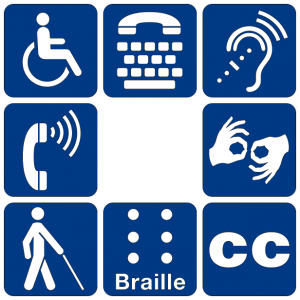 Q: We have an employee who is no longer physically capable of performing her job. We have tried to accommodate her by giving her extra time off and reducing her hours from full-time to part-time. Unfortunately, her condition has not improved and it’s affecting her overall job performance. We are at the point where we may need to let her go. Is there anything else we need to do when an employee can no longer perform duties?
Q: We have an employee who is no longer physically capable of performing her job. We have tried to accommodate her by giving her extra time off and reducing her hours from full-time to part-time. Unfortunately, her condition has not improved and it’s affecting her overall job performance. We are at the point where we may need to let her go. Is there anything else we need to do when an employee can no longer perform duties?
A: The first thing you’ll want to do is make sure that you’ve gone through the interactive process under the Americans with Disabilities Act (ADA) and have determined whether there is a reasonable accommodation that can enable your employee to work. The ADA interactive process is a series of conversations or communications between the employer and the employee. It’s designed help the parties assess and address the employee’s need for a reasonable accommodation and ability to perform the essential functions of the job.
An employer must provide a reasonable accommodation unless it causes the employer an undue hardship. What the accommodation is and whether there might be an undue hardship is case-specific to each situation. An undue hardship defense can be challenged, though, so we recommend that all steps of the interactive process and any accommodations you make are documented internally for your records.
Please keep in mind that an unpaid leave of absence can be considered a reasonable accommodation, if it is likely to return the employee to work. Additionally, the ADA can require leaves beyond the 12 weeks required under the Family Medical Leave Act (FMLA) as a reasonable accommodation. You don’t have to accommodate an indefinite leave of absence, however.
In the event that you haven’t involved the employee’s medical provider in determining whether there are possible reasonable accommodations, I recommend that you provide the employee with a medical inquiry form along with her job description to give to her doctor.
Once you have more information from the doctor about recommended accommodations, you will be able to evaluate whether you can provide the reasonable accommodation, suggest an alternative, or deny the requested accommodation as an undue hardship as detailed below.
The first two options above are the safest solution and should be tried first as they show good faith on the part of the employer. If the employee wants an accommodation such as an amount of leave beyond what you can reasonably provide, you may need to consider a termination based on an undue hardship claim. However, assuming a medical provider certifies your employee has a disability under the ADA, I would advise proceeding with caution if you assert that the leave is an undue hardship, and be aware that this may contain some level of risk to the employer. To be on the safe side, you may wish to have an employment attorney review your undue hardship defense.
For more information on how GTM keeps clients compliant with labor laws, contact us at (518) 373-4111.

